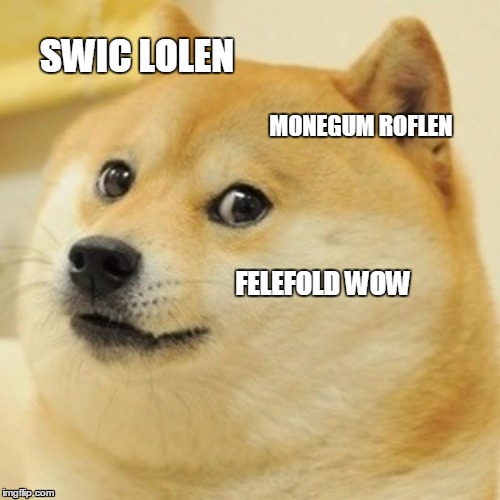Oy you lot, drop what you're doing! I can't believe we didn't start talking about Robert Frost's poem
The Road Not Taken five minutes ago! Is it up to me to start all the discussions about the completely random pointless trains of thought which I came up with for no reason at all and which I'm talking about no for even less reason? You're just lazy, that's what you are!
Anyway, everyone is wrong! This is a poem that has not just been misinterpreted, it's a poem where everyone's interpretation of the misinterpretation is a misinterpretation! (Except for me, of course.)
Two roads diverged in a yellow wood,
And sorry I could not travel both
And be one traveler, long I stood
And looked down one as far as I could
To where it bent in the undergrowth;
Then took the other, as just as fair,
And having perhaps the better claim,
Because it was grassy and wanted wear;
Though as for that the passing there
Had worn them really about the same,
And both that morning equally lay
In leaves no step had trodden black.
Oh, I kept the first for another day!
Yet knowing how way leads on to way,
I doubted if I should ever come back.
I shall be telling this with a sigh
Somewhere ages and ages hence:
Two roads diverged in a wood, and I—
I took the one less traveled by,
And that has made all the difference.
Got that?
- Okay, so ... it goes something like this. People commonly misinterpret this poem as if it was about a person choosing between two roads and then realising how that choice 'has made all the difference' later in their life. Seems simple enough, right?
- Ah, but, a second set of people claim. The poem's not really about that at all! It's about how there actually was no difference between the two choices! They point out how Frost describes the roads as being 'really about the same' and that 'both that morning equally lay'. There, you see, they claim, Frost is actually taking the piss out of this guy speaking, who says that the choice he made was actually important. The speaker is actually trying to make out a difference where there is none.
- Is not, say the first.
- Is too, say the second.
But - and here is the nub that the misinterpreters of the misinterpretation miss out on - it's not as if the speaker is relating the events as they happen to him. It's a past tense poem and could be relating events that happened years, even decades ago. So when the speaker says of his choice 'that has made all the difference', he may well be referring to knowledge he has gained since the events relayed in the poem. It is true that he says that 'I kept the first for another day/Yet knowing how way leads on to way,/I doubted if I should ever come back' - implying that he can't really know if taking the other track would have made a difference. But maybe he did? It doesn't say either way in the poem.
And it's not as if it's a purely physical poem, is it? The point the most first set of misinterpreters pick up on - sometimes - that the second set of misinterpreters don't is that it's a bit of a metaphor, really. The two roads mightn't even be real. They might just represent a choice the speaker made in their life. And though you can't ever return back to that point in your life where you were able to make that choice - 'knowing that way leads on to way', and all that - you might very well be able to discern the effects of those choices. And even if you make the simplest, most literal translation of all these lines - the poem actually is about a traveller in the woods making a choice that will affect his later life (and he is described as a 'traveller', and not just a 'sightseer' or something else, so it seems implicit he is making a journey of some import), it's pretty clear that making a choice between roads may make a difference in one's later life.
Wrong wrong wrong! You're all wrong! And citing the genesis of the poem - apparently Robert Frost wrote it for his friend, fellow poet Edward Thomas, who was apparently always regretting not taking certain roads in his walks with Frost - doesn't help much either, because it doesn't necessarily matter what the poet means to mean, since the poem means something entirely different from the meaning that poet means to mean anyway.
Right. Any objections? Good! Class dismissed!




















